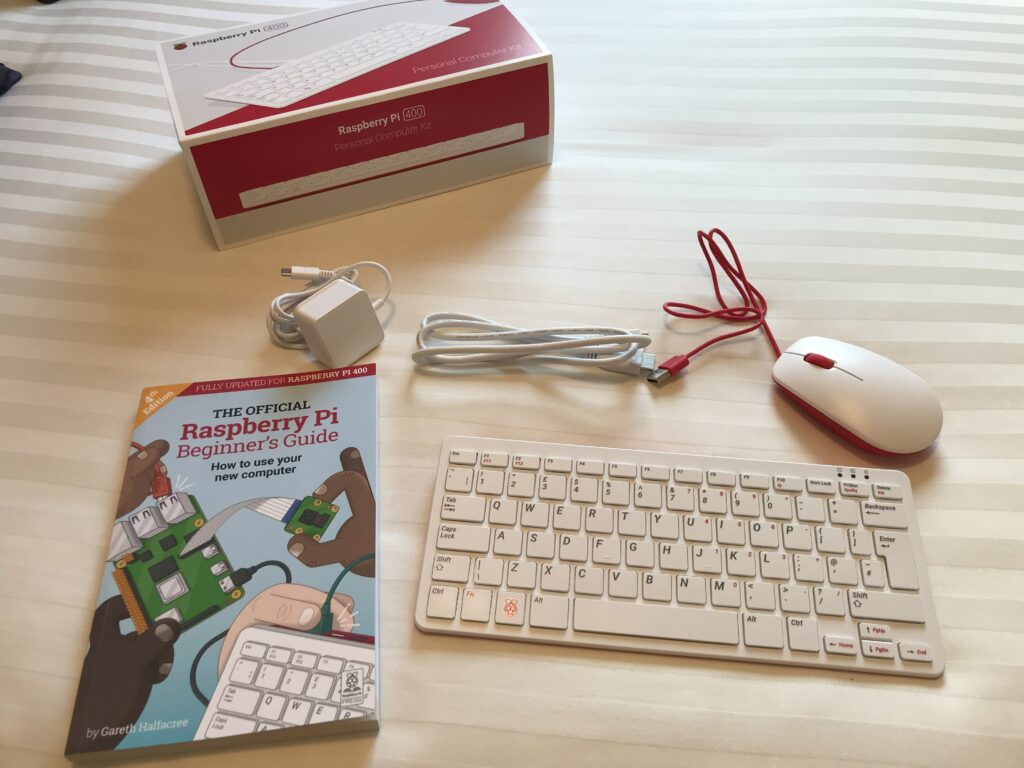I’ve recently bought a Raspberry Pi 400 which I am planning to use for most of my coding projects going forward. If you’re not familiar with this, it is a Pi single board computer but integrated into a keyboard with the relevant ports accessible at the rear very much like the classic computers that you know I love such as the Commodore 64, Amiga 500 and Atari 800.
I opted for the desktop bundle which includes the main Pi 400 computer / keyboard combo as well as a wired mouse, SD card, micro HDMI to full HDMI cable and a USB C power supply. It also comes with a nice beginners guide book which is in full colour. The keyboard isn’t bad and very compact. The Pi 400 has a faster ARM processor than it’s predecessors and 4Gb of memory as opposed to the 1Gb my Pi 3B+ had so some things which were a bit slow for me are that bit smoother on the Pi 400.

The only slight annoyance just now for me is that the composite/audio jack present on the earlier Pi’s is not included on the Pi 400 so I can’t connect up my recently purchased speakers without a HDMI to VGA splitter which isn’t producing a great picture on my monitor. I’ll maybe just pick up a monitor with an audio out jack for my speakers.
I’ve been very busy with work recently so not had a lot of time for my coding projects but I have a number in progress that I’m really excited about. I’ll not say anything else about these just now until I have a bit more to show.

The easy to use Raspberry Pi Linux environment is working quite nicely for my coding efforts but I’m very focused on ensuring that any coding I do is easily portable to other systems such as Microsoft Windows so I am continuing to use C/C++ with SFML, both of which are very easily set up on the Pi. I found Code::Blocks a little unstable on the Pi 3B+ but haven’t experienced any issues with it on the Pi 400 yet. I’ve also been using the Geany editor which comes pre-installed in Pi OS but requires a little bit more set up for me than Code::Blocks. SFML is extremely easy to set up on the Pi compared to Windows.
I’m looking forward to some enjoyable emulation on this version of the Pi such as some Commodore Amiga and classic DOS games and also in trying out some of the other operating system choices that are available such as desktop release of Ubuntu.
